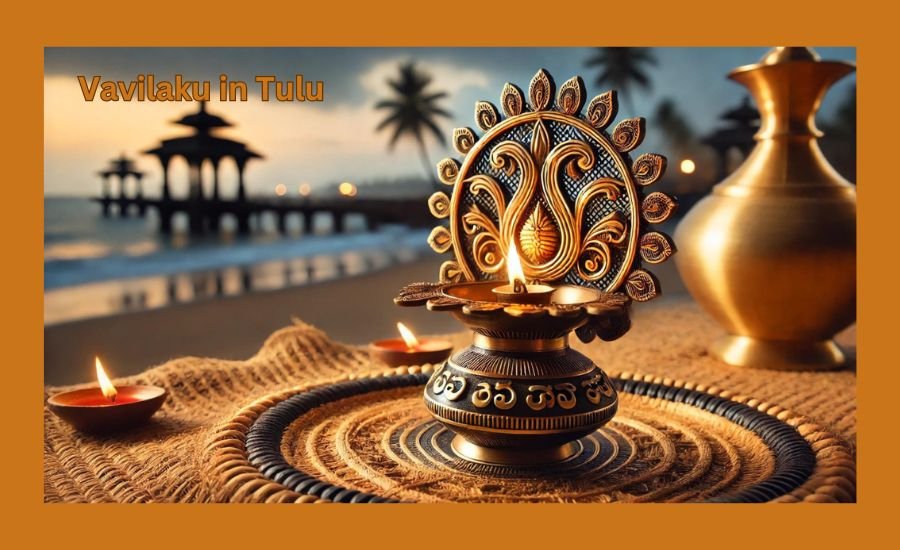The vavilaku in Tulu is more than just a lamp; it is a radiant symbol of culture, tradition, and spirituality. For the Tulu-speaking community in coastal Karnataka, India, this oil lamp represents the light that dispels darkness and invites prosperity into their homes. In this article from Blogrouters, we will explore the rich heritage and significance of the vavilaku, revealing its vital role in both daily life and festivals. Discover how this humble lamp has illuminated the lives of many and continues to shine brightly in modern times.
The Vavilaku in Tulu: A Beacon of Light and Hope
The vavilaku in Tulu is a traditional oil lamp that holds immense cultural and spiritual significance. It is not just a source of light; it is a symbol of hope and positivity. In Tulu households, lighting the vavilaku is a cherished daily ritual. Families gather around it to welcome blessings and dispel negativity. This ritual creates a warm atmosphere that fosters togetherness and connection among family members.
The vavilaku is often placed at the entrance of homes or in prayer rooms, acting as a guardian that invites divine presence. The flame represents the triumph of good over evil, embodying the community’s values of purity and enlightenment. Through this practice, families pass down their rich cultural heritage from one generation to the next, ensuring that the essence of Tulu traditions remains alive.
The Historical Roots of Vavilaku in Tulu Culture
The historical origins of the vavilaku in Tulu can be traced back to the agrarian roots of the Tulu-speaking community. Initially crafted from simple materials like clay, these lamps were essential for lighting homes during dark nights. Over time, as the community evolved, so did the vavilaku. It transformed from a practical object into an artistic and symbolic item often made from brass and bronze.
This evolution reflects the community’s journey from an agrarian society to a more urbanized culture while maintaining strong ties to their traditions. The vavilaku serves as a reminder of their rich history, symbolizing resilience and continuity. Each vavilaku passed down through generations carries with it stories of the family’s past, making it a cherished heirloom.
The Role of Vavilaku in Tulu Festivals
Festivals in Tulu culture are vibrant and full of life, and the vavilaku plays a crucial role in these celebrations. During festivals like Deepavali, the festival of lights, families light their vavilakus to symbolize the victory of light over darkness. The act of lighting the vavilaku during this festive time fills homes with joy, hope, and prosperity.
In rituals like Kambala, a traditional buffalo race, the vavilaku is lit before the festivities begin. This ritual invokes divine blessings for a successful event and demonstrates the community’s deep respect for their traditions. The lighting of the vavilaku marks the beginning of celebrations, reflecting the Tulu community’s connection to their spiritual beliefs and practices.
Vavilaku in Daily Life: A Symbol of Purity and Positivity
In Tulu households, the vavilaku in Tulu is not just reserved for special occasions; it is a part of everyday life. Families light the vavilaku at dusk to create a peaceful environment that wards off negative energies. This daily practice signifies the importance of keeping a sacred space in their homes where positive energies can thrive.
The vavilaku is often placed on the prayer altar, serving as a focal point during daily prayers and rituals. Its flickering flame acts as a reminder of hope and purity, fostering a sense of calm and serenity. By incorporating the vavilaku into their daily routines, families strengthen their spiritual connection and reinforce their cultural values.
Preserving the Tradition of Vavilaku in Modern Times

Despite rapid modernization, the significance of the vavilaku in Tulu culture remains strong. Cultural organizations and community groups actively work to preserve this tradition by organizing workshops and events. These initiatives educate younger generations about the importance of the vavilaku and its role in Tulu culture.
Efforts to preserve this tradition ensure that the knowledge and practices surrounding the vavilaku are passed down. By fostering a deeper understanding of its significance, the Tulu community maintains a vital connection to their cultural heritage, ensuring that the vavilaku continues to be a cherished symbol of light, protection, and identity.
The Symbolism of Vavilaku: More Than Just a Lamp
The vavilaku in Tulu embodies powerful symbolism beyond its physical presence. It represents purity, knowledge, and the triumph of good over evil. The light from the vavilaku signifies hope and guidance, illuminating the path toward positivity and spiritual growth.
Families believe that lighting the vavilaku can dispel darkness, both literally and metaphorically. This act creates a safe and nurturing environment that promotes peace and harmony within the household. The vavilaku serves as a constant reminder of the importance of maintaining a positive mindset and embracing the light in our lives.
Celebrating Vavilaku: A Reflection of Cultural Identity
The celebration of the vavilaku in Tulu is not just about the lamp itself; it reflects the broader cultural identity of the Tulu-speaking community. The vavilaku is a symbol of their resilience, unity, and connection to their ancestors. It represents the values and beliefs that have been passed down through generations, making it an integral part of their cultural fabric.
In modern Tulu households, the vavilaku remains a central feature during special occasions like weddings and religious ceremonies. Its presence is believed to bring blessings and prosperity to the event. This celebration of the vavilaku not only honors the past but also reinforces the community’s commitment to preserving their cultural heritage.
Conclusion: The Lasting Impact of Vavilaku in Tulu Culture
The vavilaku in Tulu is more than an oil lamp; it is a beacon of hope, light, and cultural identity. From its historical origins to its modern-day significance, the vavilaku continues to illuminate the lives of the Tulu-speaking community. By embracing this cherished tradition, families connect with their rich cultural past and uphold the values that have shaped their identity.
As we reflect on the importance of the vavilaku, we recognize its enduring role in fostering unity, spirituality, and cultural continuity. The vavilaku will undoubtedly continue to shine brightly in the hearts and homes of the Tulu community for generations to come.
FAQs
Q: What is a vavilaku?
A: A vavilaku is a traditional oil lamp used in Tulu culture, symbolizing light, prosperity, and spirituality.
Q: Why is the vavilaku important in Tulu festivals?
A: The vavilaku is lit during festivals to invoke divine blessings and symbolize the triumph of light over darkness.
Q: How is the vavilaku used in daily life?
A: Families light the vavilaku daily to ward off negative energies and create a peaceful environment.
Q: What materials are used to make vavilakus?
A: Vavilakus were originally made of clay but are now often crafted from brass and bronze.
Q: How do communities preserve the tradition of vavilaku?
A: Cultural organizations hold workshops and events to educate younger generations about the significance of the vavilaku.
Read Here About: Kvitserk-band-flac


